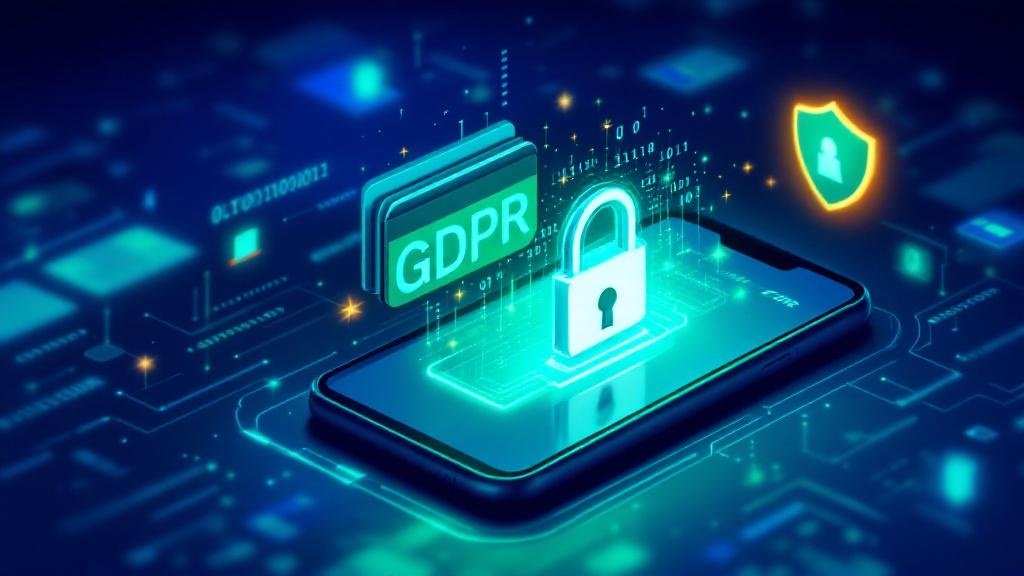In today’s rapidly evolving digital landscape, the rise of mobile wallets and digital payment systems has transformed how we manage money and make transactions. However, with this advancement comes an increased responsibility to safeguard sensitive data. One of the most significant regulations that digital wallet providers must comply with is the General Data Protection Regulation (GDPR). If you’re in the digital wallet business or use these platforms, understanding GDPR compliance is crucial to ensuring you respect user privacy and maintain trust.
What Is GDPR?
The General Data Protection Regulation (GDPR) is a comprehensive data protection law enforced by the European Union (EU) since 2018. Its primary goal is to protect the privacy and personal data of EU citizens, and it applies to businesses and organizations around the world that process the personal data of individuals within the EU.
The GDPR provides individuals with greater control over their data, including how it is collected, processed, and stored. It also imposes strict obligations on businesses, especially in industries like digital payments, where sensitive information is constantly being exchanged.
Why Does GDPR Matter for Digital Wallets?
Digital wallets collect, store, and process a lot of sensitive user data. This includes not just transaction details, but also personal information such as names, addresses, payment methods, and more. Given the growing concern over digital wallet user data security, GDPR compliance is essential to ensure these platforms don’t fall victim to breaches or misuse of personal data.
A lack of compliance can result in severe penalties. Non-compliant companies face fines up to €20 million or 4% of global turnover—whichever is higher.
So, what does this mean for digital wallet providers? Let’s break it down.
Key Aspects of GDPR Compliance for Digital Wallets
1. Data Protection Principles
To ensure that digital wallets are GDPR-compliant, it is essential to follow the basic principles of data protection, including:
-
Lawfulness, fairness, and transparency: Users must be informed about how their data will be used and consent to it.
-
Data minimization: Only collect the data necessary for the service.
-
Accuracy: Keep data accurate and up to date.
-
Storage limitation: Do not store user data longer than necessary.
-
Integrity and confidentiality: Protect data from unauthorized access or misuse.
2. User Consent and Data Collection
GDPR mandates that businesses collect explicit consent from users before collecting personal data. This means that digital wallets must clearly inform users about:
-
The type of data being collected.
-
The purpose of data collection.
-
How long the data will be stored.
Moreover, users must have the option to withdraw consent at any time, ensuring they have full control over their personal data.
Example:
If you’re using a digital wallet for online shopping, the wallet provider must ask for your permission before processing your payment information. If you choose to opt-out, your data should no longer be stored or processed.
3. Data Encryption and Secure Transactions
Digital wallet encryption is an essential tool for complying with GDPR’s requirement for data protection. Encrypting user data ensures that personal information is kept secure during storage and transmission.
Moreover, secure digital payment processing is crucial. Wallet providers need to employ encryption techniques to prevent hackers from accessing sensitive payment data.
4. Privacy by Design and by Default
Under the GDPR, privacy by design means that digital wallets must integrate data protection measures into the system’s architecture from the outset. This includes using secure coding practices, applying data encryption, and regularly reviewing the platform for potential vulnerabilities.
Privacy by default ensures that data processing settings are automatically set to the highest level of privacy. Users should not have to manually change settings to protect their privacy.
5. Data Breach Prevention and Management
A major component of GDPR compliance is having a robust data breach prevention strategy in place. Digital wallet providers must implement measures to detect, respond to, and notify authorities of any breaches within 72 hours.
How Digital Wallets Can Achieve GDPR Compliance
Achieving GDPR compliance for digital wallets involves several steps, including:
-
User Consent Management:
Ensure that user consent is clearly obtained before collecting data. Implement a GDPR consent management system that records, manages, and tracks user consent over time. -
Data Minimization:
Only collect data that is necessary for the service. For instance, if you’re offering a wallet for storing credit card details, avoid collecting unnecessary personal information like physical addresses unless needed for shipping. -
Third-Party Data Sharing:
Many digital wallets rely on third-party services like payment gateways, financial institutions, and others. It’s crucial to ensure that these third parties are also GDPR-compliant and that there are proper data protection agreements in place. -
Regular Audits and Reporting:
To ensure compliance, conduct regular audits of your data processing activities and keep detailed records of processing operations. If you’re collecting or processing data on behalf of users, you must document every step. -
Appoint a Data Protection Officer (DPO):
A Data Protection Officer (DPO) is essential for monitoring data processing activities and ensuring GDPR compliance. The DPO can also act as a liaison between the digital wallet provider and regulatory authorities.
The Role of Digital Wallet Providers in User Privacy
Digital wallet providers must be proactive in safeguarding digital wallet privacy regulations. It’s not enough to simply collect consent and encrypt data. These platforms must also educate users on their consumer rights under GDPR, which include:
-
The right to access personal data.
-
The right to rectify incorrect data.
-
The right to request data deletion.
-
The right to restrict data processing.
By clearly communicating these rights and making it easy for users to exercise them, digital wallet providers can build trust and enhance their credibility.
FAQs About Digital Wallet GDPR Compliance
1. What are the GDPR requirements for digital wallets?
GDPR requires digital wallets to secure user data, obtain explicit consent for data collection, ensure transparency in data processing, and implement robust data protection measures like encryption and breach prevention.
2. How does GDPR affect payment processors and digital wallets?
GDPR affects payment processors by enforcing strict rules on how they collect, store, and share customer data. Payment processors must be transparent about their data practices and obtain consent before processing sensitive data.
3. What happens if a digital wallet doesn’t comply with GDPR?
Failure to comply with GDPR can lead to severe fines, legal consequences, and reputational damage. Non-compliant businesses can be fined up to €20 million or 4% of global turnover.
4. What is ‘privacy by design’ in the context of GDPR?
Privacy by design means integrating data protection into the design of your digital wallet or payment system. It involves using secure coding practices, encryption, and default privacy settings to ensure data protection from the start.
5. How can digital wallet providers prevent data breaches?
To prevent data breaches, digital wallet providers should employ encryption, regular security audits, user authentication, and secure payment gateways. Prompt response and reporting of breaches are also required under GDPR.
6. Can a digital wallet store personal data without user consent?
No, GDPR requires explicit consent before collecting or processing personal data. If a user does not consent, their data cannot be stored or processed.
7. What role does the Data Protection Officer (DPO) play in GDPR compliance?
A DPO oversees all data protection activities, ensures compliance with GDPR, and acts as a point of contact between the company and regulatory authorities regarding data protection matters.
Conclusion: Is Your Digital Wallet Ready for GDPR Compliance?
GDPR compliance isn’t just a legal obligation—it’s an opportunity to demonstrate your commitment to protecting user data and building trust. Digital wallet providers must ensure they meet all the required standards of data protection, encryption, and transparency.
By prioritizing digital wallet GDPR compliance, you’re not only adhering to regulations but also positioning yourself as a leader in secure digital payment solutions. Always stay updated with the latest developments in data protection laws to ensure your wallet remains safe, secure, and trustworthy for users.








Comments (0)